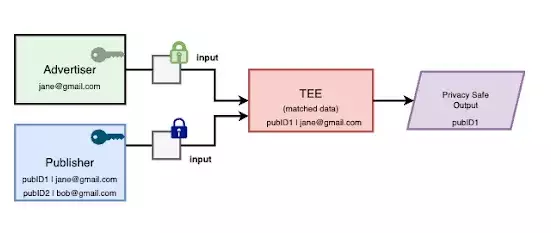As consumer privacy concerns increasingly dominate the digital landscape, Google is reevaluating its approach to data collection and advertising effectiveness. In response to these challenges, the tech giant has introduced a new feature known as “confidential matching.” This initiative is designed to reconcile the demanding nature of targeted advertising with the heightened need for privacy, providing businesses with the tools to engage audiences without compromising personal data security.
At the core of confidential matching lies the utilization of Trusted Execution Environments (TEEs). This technology enables the secure amalgamation of business first-party data and Google’s insights, facilitating a more precise and audience-centric advertising strategy. The TEE operates as a secure enclave that processes sensitive information without exposing it to unauthorized access. According to Google, this protocol maintains such stringent security that even those with system oversight cannot interfere with the information contained within the TEE’s confines. Thus, the system not only shields against potential breaches but also protects data integrity from internal misuse.
Confidential matching aligns with broader industry movements towards more conscientious data practices. Unlike traditional strategies that rely heavily on third-party cookies for tracking user behavior, this new method emphasizes a privacy-first approach. As Google shifts away from cookie reliance—initially scheduled for implementation in 2022 and subsequently delayed due to various regulatory hurdles—confidential matching emerges as a more adaptable solution. This shift marks a significant pivot from blanket tracking practices to a structured, privacy-driven methodology.
The implications of this change are profound for marketers who want to leverage Google’s extensive advertising capabilities while adhering to stringent data policies. Advertisers can now implement their encryption methods on data before it even interacts with Google’s systems, enhancing their control over sensitive information and reassuring clients about data usage practices.
Despite the promising nature of confidential matching, it exists within a context of ongoing challenges. Google’s hesitancy to fully implement cookie-less tracking illustrates the complexity of integrating privacy measures with the functionality expected by advertisers. While there is hope that confidential matching will provide a robust framework for data handling, it remains to be seen how effectively it can address lingering concerns about data security and user privacy.
Moreover, marketers are often technologists at heart, seeking straightforward methods to optimize their campaigns. While the technical aspects of TEEs and data encryption may be challenging to grasp, the essence is clear: Google is actively working to refine its tools to empower advertisers to connect with their desired audiences without compromising ethics.
As digital marketing continues to evolve amidst growing scrutiny over privacy issues, Google’s confidential matching symbolizes a definitive step towards a more responsible advertising landscape. By blending heightened security measures with innovative targeting solutions, Google not only seeks to safeguard user data but also aims to empower businesses to thrive in an increasingly complex ecosystem. Whether confidential matching achieves the desired balance remains to be seen, but it undeniably paves the way for a more ethical approach to digital advertising.


Leave a Reply